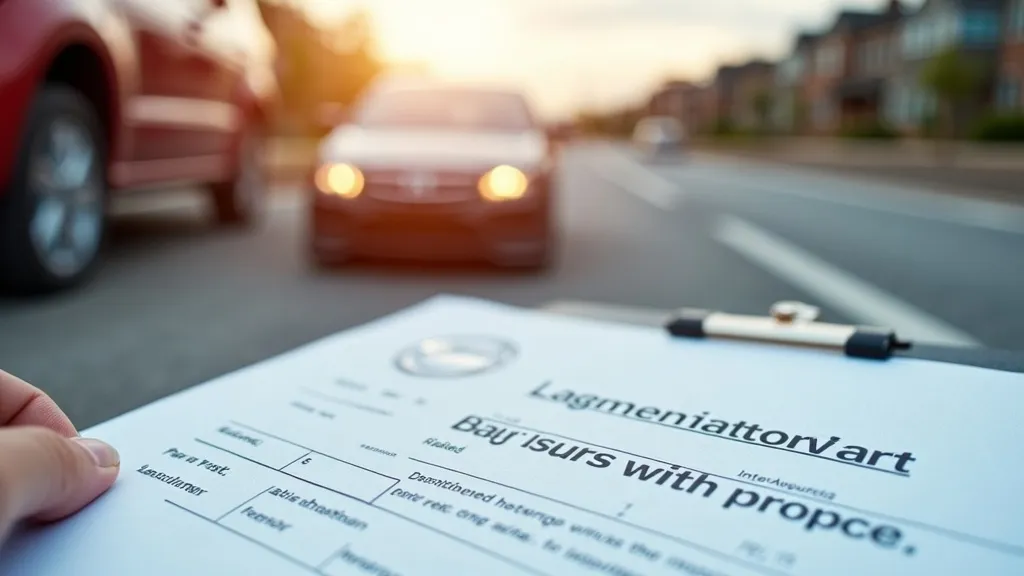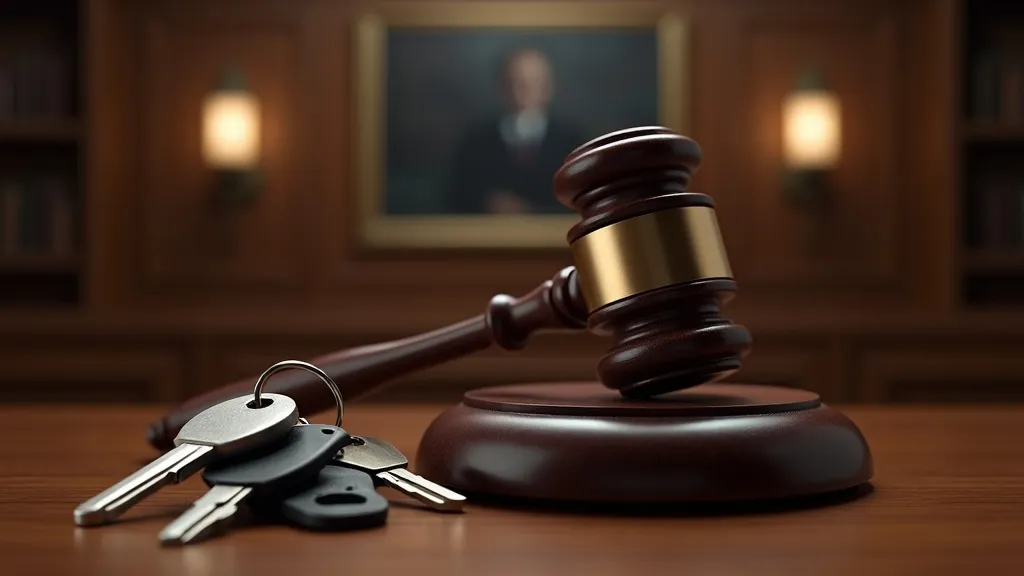Understanding Wrongful Repossession
Wrongful repossession refers to the illegal seizure of property, often concerning vehicles, by a lender or agent without proper adherence to legal protocols. This issue is significant as it infringes on property rights and can lead to financial and emotional distress for individuals. This article delves into the intricacies of wrongful repossession, its implications, and legal remedies available to affected parties.

Understanding Wrongful Repossession
Wrongful repossession, a term gaining increasing attention, refers to the illegal seizure of property, predominantly vehicles, by a lender or its agent. This practice violates established legal protocols and can have significant repercussions for the affected individuals. It is crucial to comprehend the nuances of wrongful repossession to safeguard your rights and understand the available remedies. The implications of wrongful repossession extend beyond the immediate loss of property; they can ripple through various aspects of an individual's life, impacting financial stability, mental health, and overall well-being.
In today’s complex financial landscape, many individuals find themselves relying on loans and credit to make significant purchases, including vehicles. Understanding the terms of these agreements is essential. A loan agreement typically includes the right of the lender to repossess the property if payments are missed. However, the lender must follow specific legal requirements to exercise this right. Knowing these requirements can help borrowers defend themselves against wrongful repossession.
Legal Framework and Consumer Rights
The legal framework surrounding repossession is designed to protect both lenders and borrowers. Borrowers often enter into contractual agreements that allow lenders to repossess property in the event of a default. However, this must be conducted in strict compliance with the law. Any deviation, such as repossessing without prior notice or using force, could constitute wrongful repossession.
Consumer rights are at the forefront of preventing wrongful repossession. Borrowers should be aware that lenders are required to notify them of any defaults and provide an opportunity to rectify these before proceeding with repossession. This notification is often termed a 'default notice' and is a critical step in the repossession process. Furthermore, the use of intimidation or entering private property without consent is strictly prohibited. Understanding these rights is paramount for borrowers who may find themselves facing the threat of repossession.
In many jurisdictions, laws also stipulate that repossession agents must not breach the peace during the repossession process. This means that agents cannot use physical force, threats, or intimidation to seize property. Additionally, they must not enter a private property, such as a garage or driveway, without permission. These regulations protect consumers from abusive practices and ensure that repossession occurs in a lawful manner.
Common Causes and Consequences
Several factors can lead to wrongful repossession. These include administrative errors, miscommunication, or overzealous actions by repossession agents. Administrative errors can occur when lenders mistakenly believe a borrower has defaulted on payments due to clerical mistakes or misapplied payments. Miscommunication can arise between the borrower and the lender, where the borrower may have made payments that were not properly recorded or acknowledged. Furthermore, repossession agents may act beyond their authority, leading to potentially wrongful actions.
The consequences for the borrower can be severe, ranging from financial loss to emotional distress. A wrongful repossession can lead to immediate financial hardship, especially if the vehicle is essential for commuting to work or fulfilling daily obligations. Additionally, the emotional toll can manifest as anxiety, stress, and a sense of injustice, particularly if the borrower believes they have been treated unfairly. In some cases, wrongful repossession may also damage the borrower's credit score, complicating future financial undertakings. A damaged credit score can hinder access to loans, increase interest rates, and create barriers to other essential services, such as housing.
Recognizing Wrongful Repossession
Identifying wrongful repossession can be challenging. However, key indicators include the absence of a default notice, repossession without a court order where required, or any violation of the peace during the repossession process. Borrowers should document any such instances meticulously to support potential legal action. Keeping records of all communications with the lender, including emails, letters, and phone calls, can be invaluable. Additionally, taking photographs of the vehicle's condition and the location where it was repossessed can provide further evidence if legal proceedings become necessary.
Another critical aspect of recognizing wrongful repossession is understanding the timing of the repossession. If a borrower has made a payment that has not been processed, or if they are in a payment plan that has not been honored by the lender, repossession may be wrongful. Borrowers should be aware of their payment schedules and maintain proof of payments made. Furthermore, if a borrower has formally communicated with the lender regarding financial difficulties, repossession during this period may also be deemed wrongful.
Legal Remedies and Steps to Take
If you suspect wrongful repossession, several legal remedies may be available. The first step is to contact the lender to resolve the issue. If this proves unsuccessful, seeking legal advice is recommended. Borrowers may be entitled to compensation for damages, recovery of the repossessed property, or both. Legal action can be pursued through small claims courts or higher courts, depending on the complexities involved.
It is essential for borrowers to act swiftly and decisively. Time is often of the essence in legal matters related to repossession. The following steps outline a practical approach to addressing wrongful repossession:
| Step | Action |
|---|---|
| 1 | Contact the lender to discuss the issue and seek an amicable solution. |
| 2 | Gather all relevant documentation, including notices, contracts, and any communication with the lender. |
| 3 | Consult with a legal expert specializing in consumer rights and repossession laws. |
| 4 | Consider filing a complaint with consumer protection agencies. |
| 5 | Pursue legal action if necessary, seeking restitution or other remedies. |
When consulting with a legal expert, it is advisable to choose someone with a strong background in consumer protection law. They can provide guidance on the specifics of your case, including potential outcomes and strategies for recovery. Additionally, they can help navigate the complexities of the legal system, ensuring that your rights are protected throughout the process.
Preventive Measures
Preventing wrongful repossession is often a matter of vigilance and proactive management of financial obligations. Borrowers should maintain clear communication with lenders and promptly address any financial difficulties to avoid default. Keeping detailed records of all transactions and communications can also serve as crucial evidence in disputes. Understanding your loan agreement, including payment schedules and terms, is vital for preventing misunderstandings that could lead to wrongful repossession.
Moreover, borrowers can take proactive steps to safeguard their property. Establishing a budget and making timely payments can help maintain a good standing with lenders. If financial difficulties arise, reaching out to lenders to discuss possible alternatives, such as restructuring payments or exploring hardship programs, can prevent defaults. Many lenders are willing to work with borrowers facing temporary challenges, and open communication can often lead to mutually beneficial solutions.
Awareness of consumer rights is also essential. Borrowers should familiarize themselves with state and federal laws regarding repossession. Many states have specific statutes that govern how and when repossession can occur. By understanding these laws, borrowers can better protect themselves against wrongful actions by lenders or repossession agents.
FAQs
What constitutes a wrongful repossession?
Wrongful repossession occurs when a lender seizes property without adhering to legal procedures, such as failing to provide a default notice or using force. Additionally, repossession may be deemed wrongful if it occurs without the necessary court orders or if it breaches the peace.
Can I recover my property after wrongful repossession?
Yes, borrowers can often recover their property through legal action or negotiation with the lender, especially if the repossession was conducted improperly. The recovery process may involve presenting evidence of wrongful repossession and negotiating terms for the return of the property.
How can I protect myself from wrongful repossession?
Staying informed about your rights, maintaining open communication with your lender, and promptly managing debts can help prevent wrongful repossession. Additionally, keeping detailed records of financial transactions and communications can provide essential support in the event of a dispute.
Understanding the Psychological Impact of Wrongful Repossession
Beyond the financial implications, wrongful repossession can have a significant psychological impact on individuals. The sudden loss of a vehicle or property can lead to feelings of anxiety, helplessness, and frustration. For many, a vehicle is not just a mode of transportation; it is often central to their daily lives, including work, family responsibilities, and social interactions. Losing a vehicle can disrupt these aspects, leading to a cascade of stressors that affect mental health.
Individuals who experience wrongful repossession may also face stigmatization or feelings of shame, particularly if they believe they have failed in managing their financial obligations. It is essential for those affected to recognize that wrongful repossession can happen to anyone and that seeking help is a vital step towards recovery. Support groups, counseling, and community resources can provide emotional support and practical advice for navigating the aftermath of wrongful repossession.
Legal Precedents and Case Studies
Understanding legal precedents related to wrongful repossession can provide insight into how similar cases have been adjudicated in the past. Courts have established various rulings that clarify the boundaries of lawful repossession practices. For example, in cases where repossession agents used physical force or intimidation, courts have awarded damages to victims of wrongful repossession, highlighting the importance of adhering to legal protocols.
Case studies can illuminate the complexities involved in wrongful repossession situations. For instance, a borrower may have been facing temporary financial hardships and communicated this to their lender, yet the lender proceeded with repossession. In subsequent legal proceedings, the court ruled in favor of the borrower, emphasizing the lender's failure to follow due process and provide reasonable accommodations for the borrower’s circumstances. These cases underscore the importance of both legal knowledge and effective communication in preventing wrongful repossession.
Conclusion
In conclusion, wrongful repossession remains a critical issue that requires awareness and understanding from borrowers. By being informed and vigilant, individuals can protect their rights and seek appropriate remedies when necessary. The landscape of lending and borrowing is intricate, and both parties must navigate their responsibilities with care. Borrowers should educate themselves about their rights, maintain open lines of communication with lenders, and seek legal assistance when needed. By doing so, they can better safeguard their assets and mental well-being against the risks of wrongful repossession.
Ultimately, the key to preventing wrongful repossession lies in proactive management, awareness of legal rights, and a commitment to open communication between borrowers and lenders. By fostering a cooperative relationship, both parties can work towards understanding and mitigating risks, ensuring that the lending process remains fair and equitable. As financial situations evolve, staying informed and engaged in one's financial obligations can be the most effective strategy to avoid the distressing consequences of wrongful repossession.
-
1

Explore Thrilling Adventures: Unveil the World's Very Exciting Travel Destinations
-
2

Unlock the Secrets to Maximize Your Kona SUV's Fuel Economy
-
3

Unlock the Highest Resale Profit: Expert Tips for Boosting Your Kona SUV's Value
-
4

Effortless Adaptation to Senior Apartment Living: Master the Transition with This Ultimate Strategy
-
5

Transform Your Senior Apartment into a Cozy and Charming Retreat: Personalized Touches to Make It Truly Home










